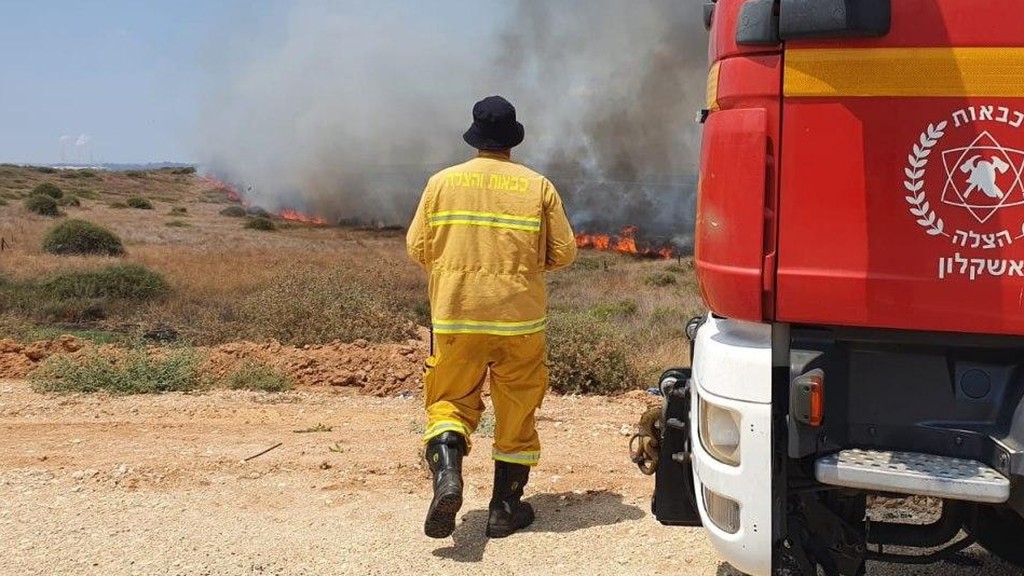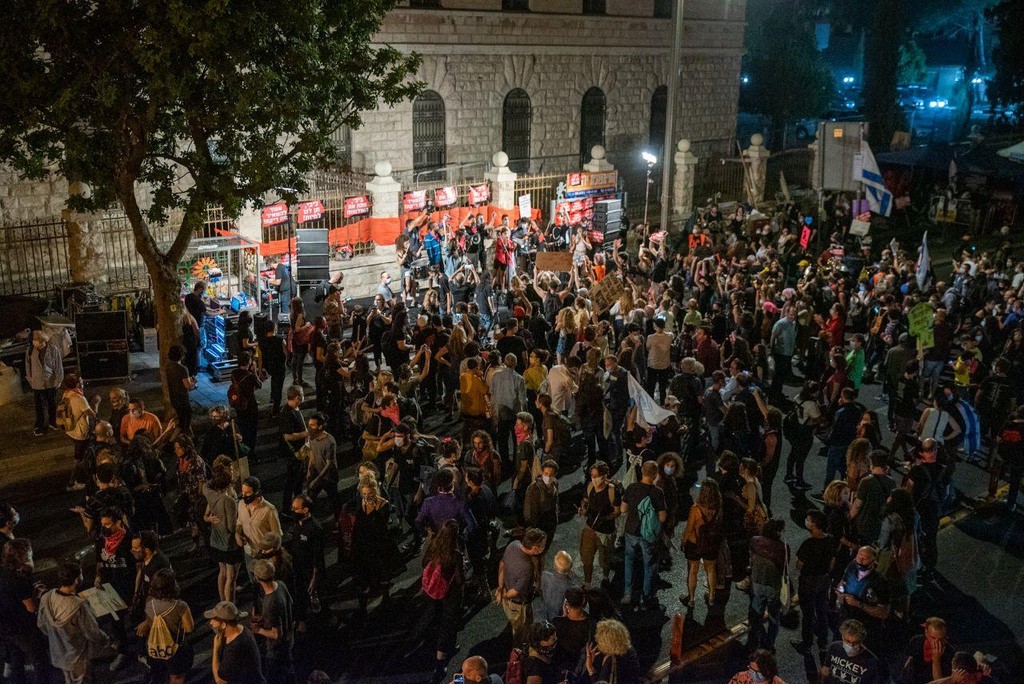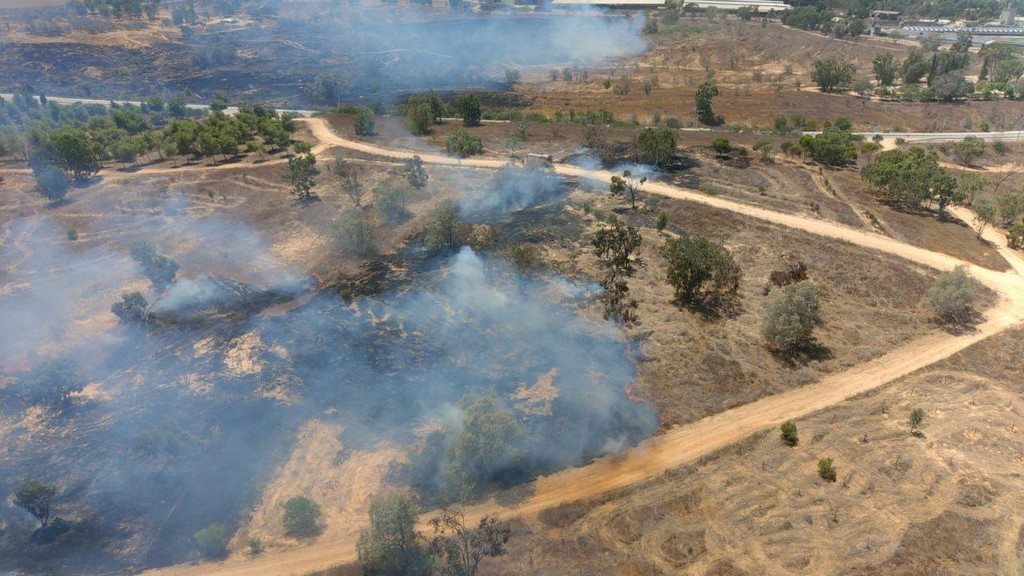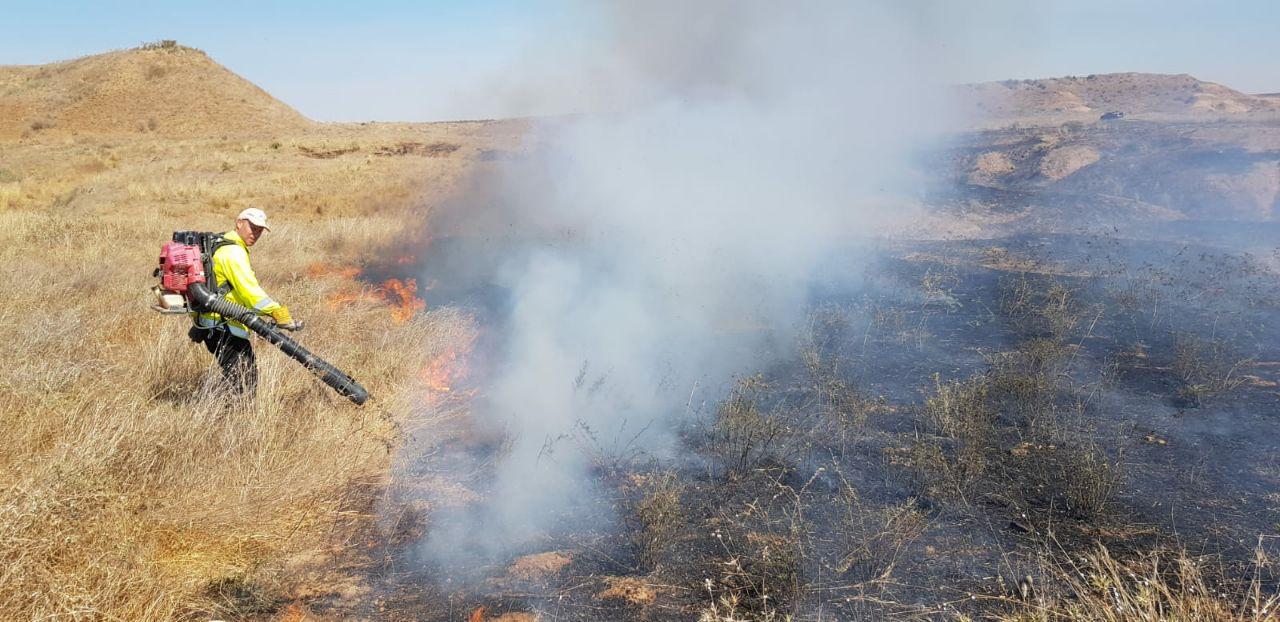Getting your Trinity Audio player ready...
The rhetoric in the Knesset was indeed fiery last week as lawmakers debated a bill to prevent someone under criminal indictment from forming a government – a bill that went nowhere by the way.
Nothing was off the table in this heated debate, except of course for the communities surrounding the Gaza Strip and the hundreds of incendiary balloons being directed at them for days.
4 View gallery


A fire fighter at the scene of a blaze caused by incendiary balloons sent from nearby Gaza
(Photo: Israel Fire and Rescue Services)
Netanyahu said he and Health Minister Yuli Edelstein were "taking care of health and the economy" while also insisting that "we are not distracted even for one moment from the security challenges facing us - and all those who harm us have and will face dire consequences."
Meanwhile, those adjacent Gaza have had their fill of promises. Netanyahu's "dire consequences" mean very little to them at this point.
And so, far from the public consciousness, with total disconnect from the drama unfolding in Jerusalem, the people of Gaza are blowing up their balloons, sending them to burn Israeli crops and fields, while Israeli firefighters are racing to put out the fires they start.
Despite the cinematic quality of the story - the scorched blackened earth, the orange flames, the yellow-unformed fire fighters in their red fire engines - it will get one minute of airtime on Israel's TV channels.
So while the residents of these communities fight for their lives and livelihoods, the rest of the country is waiting for this seasonal saga to conclude, because everybody else has the protests outside the prime minister's Balfour Street residence on their minds.
Even the occupant of the prime minister's Balfour Street residence is preoccupied with the protests and what they represent - and not the plight of the Gaza border area.
4 View gallery


Protesters outside the prime minister's Balfour Street residence in Jerusalem
(Photo: Shalev Shalom)
Until the Qatari aid money for Gaza arrives, until Israel reopens the crossings in and out of Gaza, and until the Gazans' fishing territory is restored – as per Hamas' demands – the ritual will continue unabated.
This ritual includes the usual IDF statements about "attacking Hamas targets," which the troops baking in the blazing sun know means nothing more than bombarding a tent made out of four planks and a canvas bag that has been declared an observation post.
These soldiers, like the country's leadership, know you do not go to war over a few thousand acres of scorched fields, which were destined to be tilled and seeded come the next season anyway.
Even if the attacks burn a few woods or threaten a few houses, you still do not go to war. All the more so when the news keep reporting there was no loss of life during the attacks, which can only be attributed to to extreme luck and divine intervention.
Because the fires in the fields, the burnt eucalyptuses, and the wild animals trapped beneath them are a terrible sight. No one can predict where the next balloon will land, or when it will land in a kindergarten and burning everything to a crisp.
The threat continues, and the closer it is to your home, the closer the sound of the roaring fire is to your children's bedroom, the more the phrases "no casualties" and "no damage caused" lose all meaning.
All those who were "not injured" are being left behind - by the prime minister who promised to eradicate terrorism from Gaza about 10 years ago, by three IDF chiefs and one opposition leader who had their photos taken near the same threatened fields and promised to do what the prime minister failed to, and by a government that does not even bother to pretend to deal with the root of the problem.
What could the government do? Well, it could let the Qatari aid money to flow into Gaza, stop using the fishing zones as a weapon against a coastal enclave where people are literally starving to death, allow in the shipments of goods, advance infrastructure projects in the Strip, nurture hope on both sides before Hamas decides to dispatch its explosive messages.
We know what our answer to such attacks will be - as it always was. But we should be fighting the motivation for these attacks and not with weapons.
Even so the government continues on this course despite knowing it will most likely lead us nowhere, certainly not a long-term solution that bring stability.



